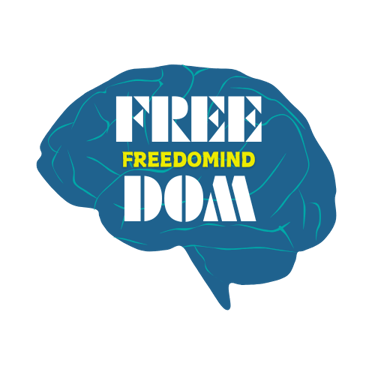A New Path to Manage Bipolar Disorder Naturally
Discover a new way to understand and manage bipolar disorder—beyond brain chemistry. Learn how heavy metals affect emotional balance and explore practical, natural strategies to support brain detox, emotional training, and nutritional repair.
MENTAL HEALTH
Jessica Ao | Hypnotherapist & Nutrition Coach
7/1/20256 min read


Bipolar disorder can feel like an emotional rollercoaster—fast, unpredictable, and overwhelming. One moment, you’re full of energy and confidence, ready to take on the world. The next, you crash into a deep, colorless low where even getting out of bed feels impossible. These dramatic mood swings don’t just affect the person going through them—they impact families, relationships, and everyday life.
Traditionally, bipolar disorder has been seen as a result of chemical imbalances in the brain, particularly involving neurotransmitters like serotonin and dopamine. But new research reveals a deeper layer—one that involves toxic heavy metals accumulating in the brain and interfering with its natural ability to regulate mood.
In this article, we’ll explore the hidden root causes of bipolar disorder, including how toxic metals disrupt brain health. We’ll also introduce science-supported healing strategies, combining emotional training, targeted nutrition, and detox support. Whether you’re facing bipolar disorder yourself or supporting someone who is, this information offers a new and hopeful direction for lasting change.
What Is Bipolar Disorder?
Bipolar disorder, also known as Bipolar Affective Disorder, is a long-term mental health condition marked by intense emotional highs (mania) and lows (depression).
Manic episodes may include racing thoughts, extreme confidence, impulsive decisions, risky behavior, and little need for sleep.
Depressive episodes are often filled with hopelessness, fatigue, loss of interest, and even suicidal thoughts.
Everyone experiences emotional ups and downs, but bipolar disorder goes far beyond normal mood changes. The brain struggles to manage emotional shifts, and the result is often a sense of being out of control.
I once knew a friend in the U.S., let’s call him Jack. Jack was creative, energetic, and full of life. But during manic phases, he would overspend, make reckless decisions, and chase unrealistic dreams. In depressive phases, he withdrew completely and felt worthless. Despite over a decade of medication, his condition worsened. Sadly, he took his own life at the age of 28. His story left me deeply aware that traditional treatment alone is not enough, we need to go deeper.
Looking Deeper: The Missing Link
Most people assume mood is only controlled by brain chemicals. But the brain is actually a complex electrical and chemical system. It depends on trace minerals like magnesium, zinc, copper, and iron to send signals between neurons. When these are unbalanced, or when toxic metals invade the system, emotions can spiral out of control.
Research now links several toxic heavy metals to mood instability:
Mercury damages neuron membranes and blocks communication between brain cells, often linked to anxiety and memory loss.
Arsenic is connected to depression and reduced brain function.
Lead and nickel can trigger brain inflammation and nerve damage.
Excess copper can block zinc, disrupting brain chemistry and emotional balance.
These metals often enter the body quietly, through high-mercury fish like tuna, lead pipes in old homes, chemical-laden cosmetics, pesticides, or industrial pollution. Over time, even small exposures can build up, disturb brain signaling, and contribute to mood disorders like bipolar disorder.
Why Professional Support Is Essential
Bipolar disorder is not caused by one single factor. It's a multi-layered condition involving brain chemistry, inflammation, subconscious stress, and environmental toxins. That’s why medication alone often isn’t enough.
For example, lithium, a common drug used for bipolar disorder, can stabilize mood but may harm the kidneys and doesn’t address heavy metal buildup. Emotional therapy helps increase self-awareness but doesn’t always correct nutritional deficiencies or detox problems.
To truly heal, you need a holistic strategy that integrates three things:
Emotional Reprogramming – Release unresolved inner conflicts and build emotional strength.
Nutritional Rebuilding – Feed the brain the nutrients it needs to repair.
Deep Detox – Safely remove the toxic metals disrupting your mind and mood.
Nutrition That Supports Brain Detox and Emotional Stability
Food is more than fuel, it’s medicine. Certain foods actively reduce inflammation, help remove toxins, and support emotional balance.
1. Detox-Supporting Superfoods:
· Wild blueberries – Rich in antioxidants that protect brain cells and reduce metal toxicity.
· Cilantro (coriander) – Helps bind to heavy metals like mercury and lead.
· Atlantic dulse – A red seaweed that pulls toxins from tissues and organs.
· Organic spirulina – Supplies minerals and binds to harmful metals.
· Barley grass juice powder – Rich in zinc and magnesium, which aid brain function and calm the nervous system.
Note: Always work with a qualified nutritionist to find the right balance for your body and avoid overstimulation
2. Brain-Friendly Diet Habits:
Focus on fresh fruits and vegetables.
Avoid dairy, processed foods, and artificial additives.
Include zinc- and magnesium-rich foods like pumpkin seeds, avocados, spinach, and bananas.
Avoid pesticide-heavy or genetically modified foods like corn and soy.
3. Reduce Environmental Exposure:
Use water filters to remove lead, mercury, and arsenic.
Avoid high-mercury fish like tuna and swordfish.
Choose non-toxic skincare and cleaning products.
The Three Pillars of Holistic Support
1. Emotional Therapy and Mindset Coaching
Emotions aren’t just chemical—they’re deeply tied to your subconscious memories and past traumas. In our one-on-one sessions, we guide you through custom emotional training programs that help release hidden emotional patterns and build true emotional control.
2. Personalized Nutrition and Detox Planning
We design a nutrition and detox plan based on your health history, lifestyle, and needs. This supports your body’s self-healing ability while minimizing side effects like fatigue or brain fog during detox.
3. Integrated Healing and Ongoing Support
According to the Journal of Clinical Psychiatry (2020), combining nutrition, emotional work, and lifestyle changes significantly reduces bipolar symptoms and relapse risk. You don’t have to do this alone. Ongoing support helps you stay on track and feel empowered every step of the way.
Ready to Start Your Healing Journey?
You don’t need to “fix everything” today—but you can take one small step now. Here’s how to begin:
Book a Free Consultation – Get personalized insight into your emotional and physical state.
Start with Food – Begin adding detox-friendly foods like blueberries, spirulina, and cilantro into your meals.
Build a Support Network – Connect with a healing community, trusted practitioners, or supportive loved ones.
Remember: You are not alone. You’re not broken. You simply need a better map—one that includes all of you: your brain, your body, your emotions, and your spirit. When you have the right support, healing becomes not only possible—but powerful.
Start your journey today—book a call and take back your emotional freedom.
Reference
David, O. J., Hoffman, S. P., Clark, J., Grad, G., & Sverd, J. (1983). The relationship of hyperactivity to moderately elevated lead levels. Archives of Environmental Health, 38(6), 341–346.
González-Estecha, M., Trasobares, E. M., Cano, S., Fernández, M. A., Fernández, C., García, J., ... & Arroyo, M. (2011). Blood and urine levels of lead and cadmium in bipolar disorder patients. Environmental Research, 111(8), 1011–1017.
Kay, D. S., Naylor, G. J., Smith, A. H., & Greenwood, C. (1984). The therapeutic effect of ascorbic acid and EDTA in manic-depressive psychosis: Double-blind comparisons with standard treatments. Psychological Medicine, 14(3), 533–539.
Mendez-Armenta, M., & Rios, C. (2007). Cadmium neurotoxicity. Environmental Toxicology and Pharmacology, 23(3), 350–358.
Orisakwe, O. E. (2014). The role of lead and cadmium in psychiatry. North American Journal of Medical Sciences, 6(8), 370–376.
Sarris, J., Mischoulon, D., & Schweitzer, I. (2011). Adjunctive nutrient-based therapies for bipolar disorder: A systematic review. Bipolar Disorders, 13(5–6), 454–465.
Sarris, J., Ashton, M., Galati, J., & Mischoulon, D. (2012). Nutrient-based therapies for bipolar disorder: A systematic review. Psychotherapy and Psychosomatics, 82(1), 10–19.
Saunders, E. F. H., Mukherjee, D., Myers, T., et al. (2022). Adjunctive dietary intervention for bipolar disorder: A randomized, controlled, parallel-group, modified double-blinded trial of a high n-3 plus low n-6 diet. Bipolar Disorders, 24(2), 171–184.
Siwek, M., Dudek, D., Paul, I. A., et al. (2009). Oxidative stress markers in bipolar disorder: A meta-analysis. Journal of Affective Disorders, 111(2–3), 135–144.
Sylvia, L. G., Peters, A. T., Deckersbach, T., & Nierenberg, A. A. (2013). Lifestyle interventions for bipolar disorders: A systematic review and meta-analysis. Journal of Affective Disorders, 152–154, 1–11.
© 2017-2025 Freedomind LLC All Rights Reserved.
Use of this website, content, and products are for informational and educational purposes only.
We do not provide medical advice, diagnosis, or treatment.
For more information, please read our Terms and Conditions and Disclaimer.
